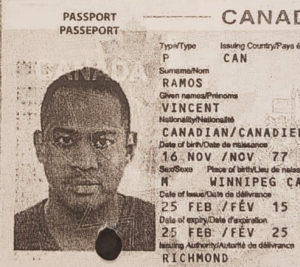
Bob Mackin
The lawyer for the Abbotsford man who was once the RCMP’s top civilian intelligence officer told a jury in Ottawa Nov. 16 that his client was neither an enemy of the RCMP nor of Canada.

Cameron Ortis
Cameron Ortis, accused of leaking top secret information, pleaded not guilty in Ontario Superior Court to four counts under the Security of Information Act and breach of trust and misuse of a computer under the Criminal Code.
“Why would Cameron Ortis, a dedicated, hardworking, intelligent and devoted employee of the RCMP, decide to send special operational information to members of organized crime? What reasons could there be?” Jon Doody asked during his closing arguments for the trial, which began Oct. 3.
Doody said Ortis had been mischaracterized and that the Crown did not prove its case beyond reasonable doubt.
Even though Ortis was restricted for national security reasons in what he could tell the court, even during closed-door sessions, Doody said he chose to testify anyway in his own defence in order to explain the motive for the 2015 operation. Doody said Ortis intended to “fulfill his role in the RCMP to carry out the mission and to protect Canada and citizens like you and me.”
“We heard that there was no evidence of any communication to anyone other than the four named individuals on the indictment. We heard that there was no evidence Cam received any financial payments from anyone,” Doody said. “There’s no evidence of other information being stored away, breaching use. Finally, there was no evidence of an attempt to continue communicating with any of the targets beyond what’s disclosed in this binder.”
Ortis testified that, under his so-called “Operation Nudge,” he lured four targets onto the Tutanota encrypted email system in order to gather evidence against them for an international investigation. Three of the persons of interest were involved in transnational money laundering. Another was Richmond’s Vincent Ramos, who ran Phantom Secure, an encrypted smartphone supplier whose clients included the Hells Angels and Mexico’s Sinaloa drug cartel.
But a Crown prosecutor said Ortis put forward a fatally flawed defence.

Phantom Secure mastermind Vincent Ramos
Judy Kliewer said witnesses testified that Ortis was primarily a manager who had no authority to communicate the type of information he provided the targets.
“The very, very, very narrow issue that you need to decide in this case is whether Mr. Ortis acted with authority,” Kliewer told the 12-member jury.
Kliewer recounted how the RCMP and international law enforcement partners in the Five Eyes Alliance, from the U.S., U.K., Australia and New Zealand, decided to crack down on Canadian companies providing encrypted smartphones to organized crime.
“In July 2013, the RCMP National Intelligence Coordination Centre, the NICC, initiated Project Saturation to provide an intelligence assessment of these Canadian companies, including the British Columbia-based company Phantom Secure Communications,” Kliewer said. “Vincent Ramos was the Phantom Secure chief executive officer, Kapil Judge was Phantom Secure’s technical manager and Jean-Francois Eap was a known associate of Ramos.”
Ramos was arrested in 2018, convicted in 2019 and sentenced to nine years in a U.S. prison. U.S. authorities in San Diego charged West Vancouverite Eap in 2021 with conspiracy to violate the Racketeer Influenced and Corrupt Organizations Act for selling encrypted phones to criminals from his Vancouver company, Sky Global. Sky Global was shut down, but the case against Eap has yet to proceed.

Jean-François Eap (Facebook)
Kliewer said that Ortis informed Ramos that Phantom Secure was under investigation and that a person who had approacehed Judge at the Vancouver International Airport was really an undercover operative. She said Ortis also told him that police identified locations of his Phantom Secure servers and that they were also observing Ramos’s travel habits.
“[Ortis] told Mr. Ramos that he could use this information to thwart investigative efforts against him, suggesting that he move his servers, that he adjust his financial transactions so they wouldn’t attract attention,” Kliewer said.
On Nov. 17, Kliewer concluded her closing arguments by saying that Ortis was working contrary to the public good, noting that he asked Ramos for $20,000 and kept his actions hidden from 2015 until the time of his arrest in 2019.
“He was a civilian member in charge of Operations Research, with no responsibility, no duties, no involvement in police operations whatsoever. He was not a trained undercover operator, he was not a trained member,” Kliewer said. “His only responsibility was to advise senior decision makers of the intelligence that he was able to gather. There was no record found of any such operation. No policy allowed for communication of this information.”
Justice Robert Maranger will continue his charge to the jury on Nov. 20.
Support theBreaker.news for as low as $2 a month on Patreon. Find out how. Click here.











